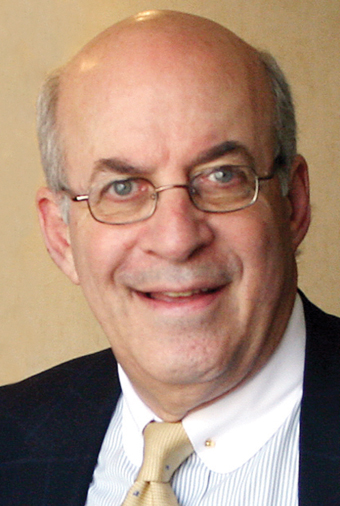 Harvey Kaplan recently returned from a Diplomatic Mission to Berlin and Brussels with AJC, the Global Jewish Advocacy organization. Kaplan, who is a member of AJC’s National Board of Governors and the board of AJC’s Transatlantic Institute in Brussels, joined a delegation of approximately 50 AJC leaders, led by AJC’s CEO David Harris, to mark the 20th anniversary of AJC’s Berlin Ramer Institute. AJC was the first Jewish organization to engage with the German government following WWII.
Harvey Kaplan recently returned from a Diplomatic Mission to Berlin and Brussels with AJC, the Global Jewish Advocacy organization. Kaplan, who is a member of AJC’s National Board of Governors and the board of AJC’s Transatlantic Institute in Brussels, joined a delegation of approximately 50 AJC leaders, led by AJC’s CEO David Harris, to mark the 20th anniversary of AJC’s Berlin Ramer Institute. AJC was the first Jewish organization to engage with the German government following WWII.
In Berlin, the recent delegation met with Chancellor Angela Merkle, U.S. Ambassador Richard Grenell, leaders of the major German political parties, other high ranking German officials, and members of the German Jewish community. Shortly after the meeting, elections were held in Bavaria and Chancellor Merkle announced that she will step down as her party’s leader.
“Thankfully, as we saw during the mission, AJC and its Berlin office are regularly engaged with the leaders of all the major parties in Germany,” Kaplan said. “AJC is highly regarded across the political spectrum and they are well-placed to continue their work despite changes in leadership.”
From Berlin, Kaplan traveled to Brussels for additional diplomatic meetings with AJC’s Transatlantic Institute. They met with Ronny Leshno-Yaar, the Israeli Ambassador to Belgium, and the EU, US Ambassadors Ron Gidwitz and Gordon Sondland, as well as Katharine von Schnurbein, EU coordinator for combating anti-Semitism, and Fernando Gentilini, head of Middle East policy for the EU.
In addition, the group met with members of the Belgian Jewish community. “The most significant issue facing Jewish communities in Europe is the alarming rise of anti-Semitism,” said Kaplan. “Not only from the far right, but also from the far left and radical Islamists.”
AJC’s Transatlantic Institute has successfully advocated the European Union for a resolution adopting the International Holocaust Remembrance Alliance (IHRA) definition of anti-Semitism, which includes specific examples, such as the demonization of Israel. AJC is following up on this important development by urging each of the 28 EU member states to adopt legislation that includes the IHRA definition.
The Brussels delegation concluded with a reception for European alumni of AJC’s Project Interchange. Project Interchange brings journalists, political leaders and academic leaders to Israel to learn about its remarkable success and the challenges it faces in seeking a peaceful solution to the Israeli-Palestinian conflict.
“Politically, the EU holds Israel responsible for lack of progress in the peace process while downplaying obstacles by the Palestinians,” Kaplan said. “This overshadows all aspects of EU-Israel relations, including commercial, scientific and security cooperation. AJC’s Transatlantic Institute is continually engaged in advocating on behalf of Israel and explaining the real impediments to a peaceful solution.”
The late Shimon Peres once referred to AJC as “the State Department of the Jewish people,” with unparalleled access to diplomats, government officials and religious leaders. AJC has 22 U.S. regional offices, including JCRB|AJC in Kansas City. In addition, AJC has 10 overseas offices, as well as partnership agreements with Jewish communities around the world.
In addition to his national and international AJC involvement, Kaplan is a former chair and current member of the JCRB|AJC board. He also served as chair of the JFS board, and as a member of the board of Menorah Medical Center. He was recently appointed to the board of the Truman Library. Kaplan is a trial lawyer, who was senior partner at Shook, Hardy & Bacon, where he practiced for 45 years.


